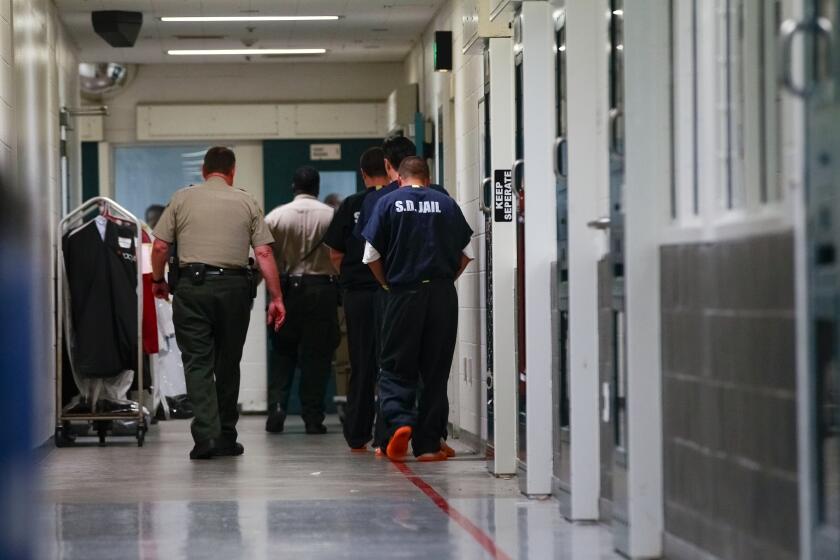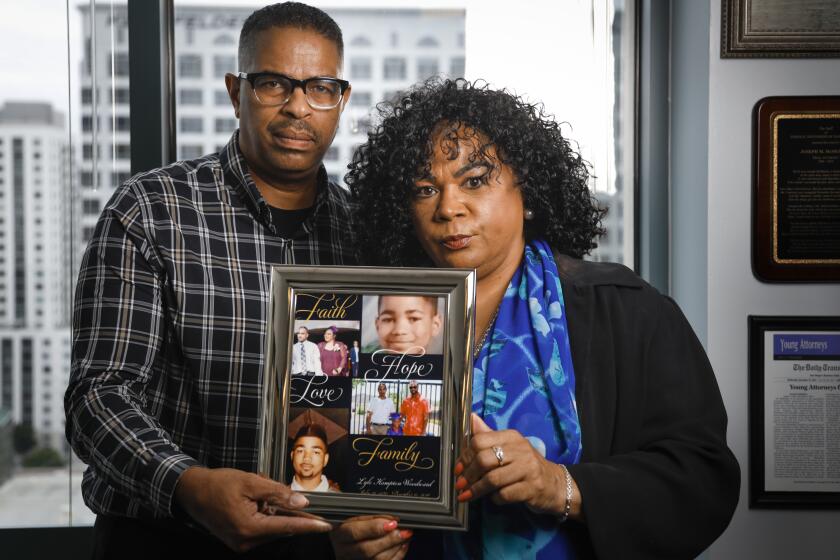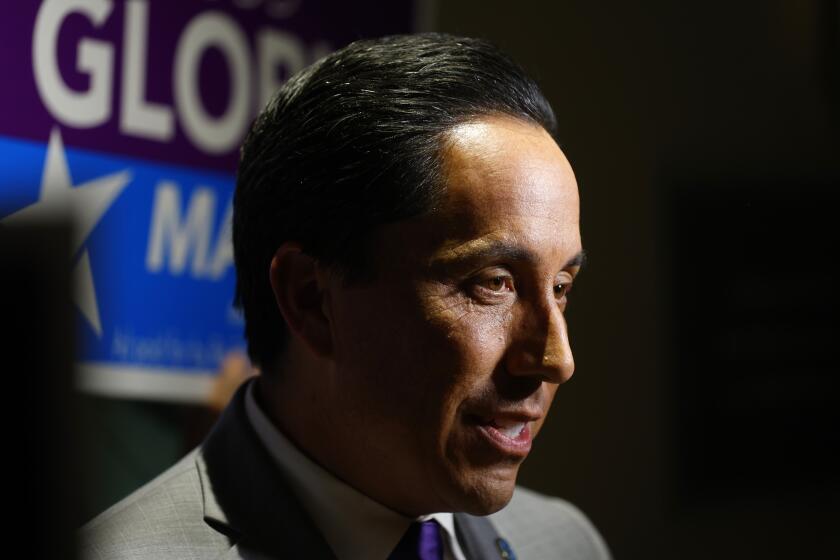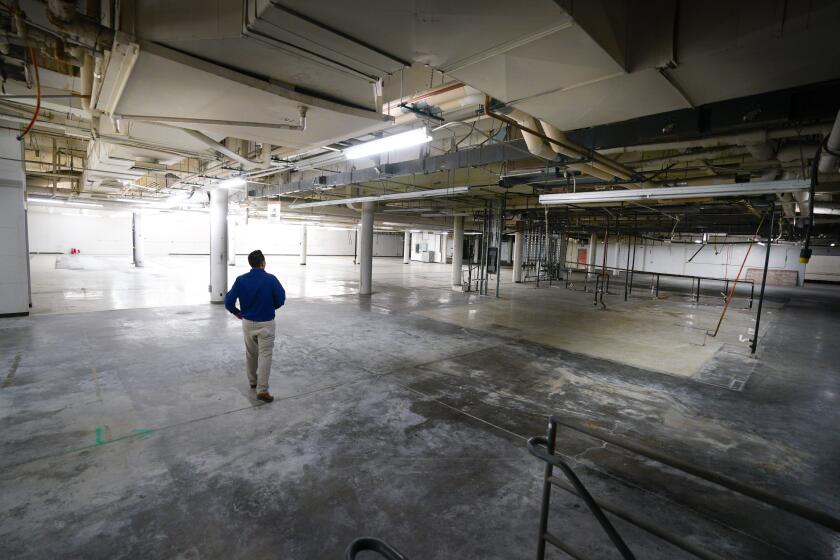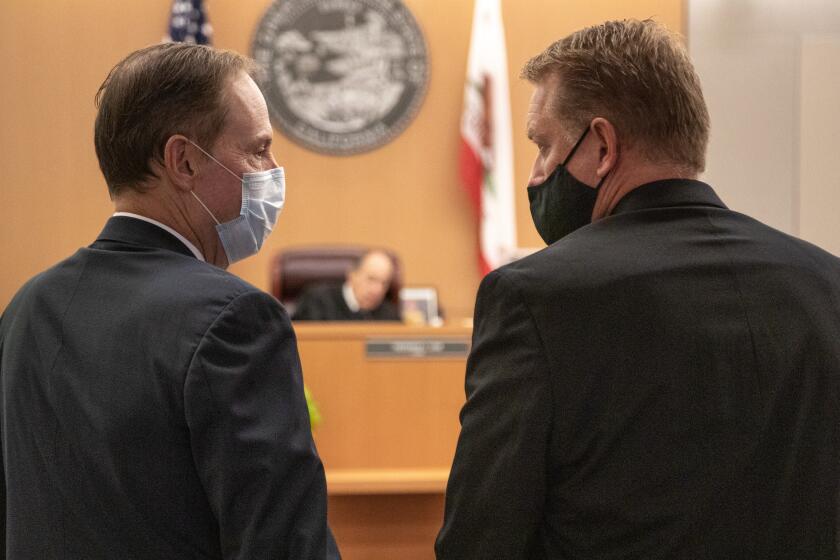Executive wants greater oversight powers for civilian board amid jail deaths — including over medical staff
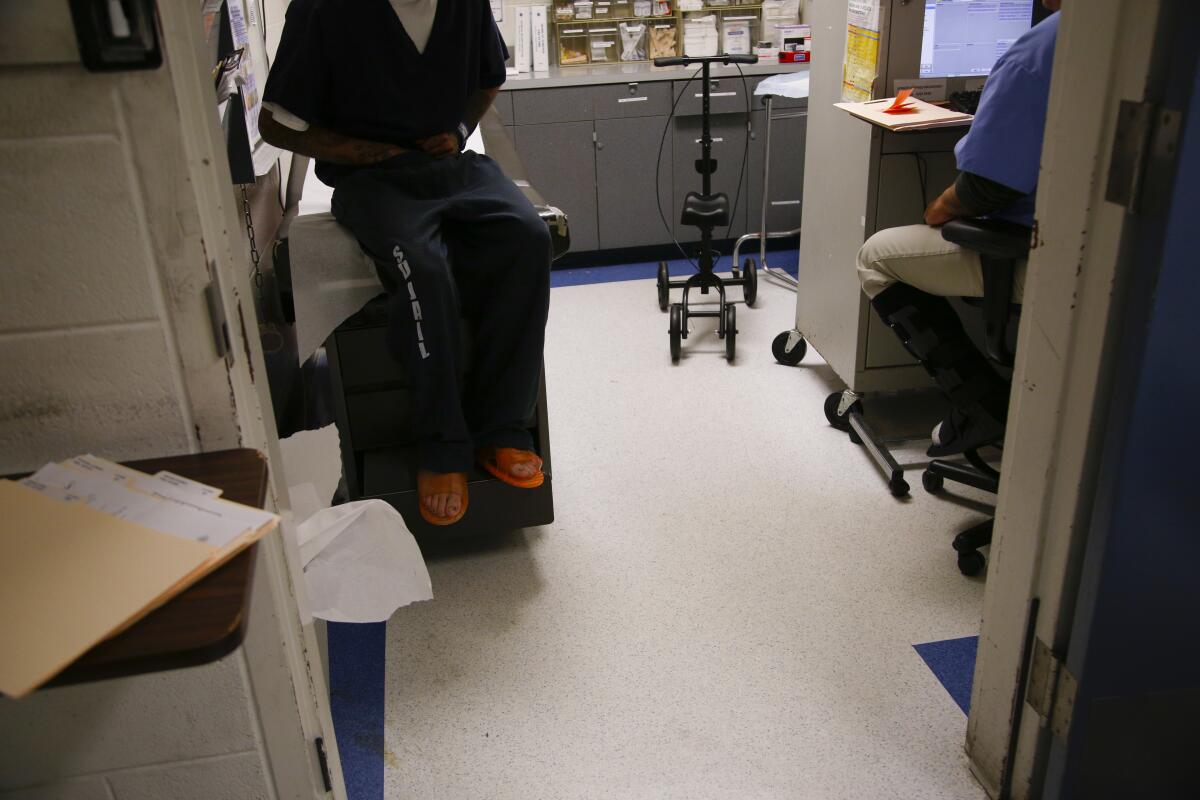
Top Citizens’ Law Enforcement Review Board officials scheduled a special meeting to consider a host of changes, including one that would eliminate a one-year limit on the board’s authority to investigate misconduct complaints.
The executive in charge of civilian oversight of the San Diego County sheriff’s and probation departments is pushing forward with changes he says are needed to help make sure the two law enforcement agencies are held more accountable to the public.
Paul Parker, who is in his second stint as executive officer of the Citizens’ Law Enforcement Review Board, has called a special meeting for later this month to consider recommendations to improve oversight of the two departments.
Topping the agenda is a plan to expand the board’s authority to oversee all sheriff’s and probation employees, including jail healthcare staff. Under existing rules, the board is only permitted to review complaints and misconduct allegations against sworn personnel.
The prospect of adding jail medical and mental-health staff to the review board’s jurisdiction has taken on added urgency in recent years. Forty people have died in sheriff’s custody since the start of 2021, including a record 20 just last year. One of those died at a hospital soon after he was granted a compassionate release.
Sheriff’s Department says it is improving practices and actively recruiting
According to a state audit released early last year, 185 other people died in San Diego County jails between 2006 and 2020. State investigators said conditions in local jails were so dangerous that new legislation was needed to force reforms on the department.
Many of those people died after receiving inadequate medical or mental health care, according to outside investigations by state auditors, medical examiners and lawyers who have represented family members of those who died.
Department officials continue to downplay conditions, deny data
“For two years this has been my primary focus, as CLERB is not privy to the ‘big picture’ of in-custody deaths without the ability to investigate medical and mental health services provided to incarcerated persons,” said Parker, who returned to his job in 2020 after leaving in 2018.
Parker said he is pushing the change now in response to a campaign pledge from Sheriff Kelly Martinez at a debate last fall that all department employees should be subject to review by the panel.
“I think that any classification that works in our facilities that has, you know, power over what’s going on in our facilities or in patrol should be included,” Parker’s letter to the board quoted Martinez as having said at the debate.
Martinez was elected to her six-year term several weeks later.
As acting sheriff last year, Martinez said findings from the Critical Incident Review Board would be made public. A spokesperson now says the department will release summaries of the review board findings — not the actual findings themselves.
All told, Parker outlined more than 20 separate proposed changes to the review board’s rules and regulations, including a new vision statement.
Some of the changes would merely codify existing practices; others would be more deliberate.
Among them, the proposed changes would expand the oversight panel’s jurisdiction to include performing audits and analyses over the Sheriff’s and Probation departments. That would give board investigators access to internal reports and data for their independent reviews.
“The thought is that audit/monitoring models promote long-term, systemic change in a law enforcement agency,” Parker wrote to review board members. “It would be beneficial if CLERB was provided access to departments’ reporting systems.”
Another change would eliminate a one-year limit on the board’s authority to investigate complaints of misconduct.
“This self-imposed limitation is not consistent with the options available to the Sheriff’s and Probation departments and has resulted in CLERB summarily dismissing without investigation allegations of serious misconduct,” Parker said.
In 2017, months after Parker began his first stint as executive officer, the Citizens’ Law Enforcement Review Board summarily dismissed 22 death investigations due to time limitations. The decision was broadly criticized by relatives of deceased detainees and others.
The proposed updates also include an expanded definition of “misconduct” for the agencies’ medical service providers. If adopted, the term would include “a deviation from standard of care, error or omission related to medical care or mental health services.”
The citizens panel charged with reviewing deaths inside San Diego County jails or those who died while in Sheriff’s Department custody will consider a plan to summarily dismiss almost two dozen cases due to a long-running backlog.
Barbara Attard is the former independent police auditor for the city of San Jose and co-authored the Police Misconduct Complaint Investigations Manual.
She said expanding the San Diego County review board’s jurisdiction would help provide a fuller picture of the incidents under investigation.
“I think this is important,” she said after reviewing the proposed reforms. “It sounds like a good step forward in oversight.”
The review board is scheduled to convene in person on March 21 for the first time since the COVID-19 pandemic declaration.
The special meeting to consider a major expansion of review board responsibilities will be held in open session one week later. It will be the third time in two months that Parker will have presented a host of proposed reforms to his volunteer board.
“The special meeting was scheduled so that the CLERB members could publicly discuss the proposals and decide with which ones, and when, they want to move forward,” Parker said late last week.
“Once I receive that guidance from CLERB on March 28, I will have a better understanding of timelines for next steps,” he said.
Any recommendations approved by the review board would require meet-and-confer sessions with the labor unions that represent county employees.
They would also need to be approved by the county Board of Supervisors.
Get Essential San Diego, weekday mornings
Get top headlines from the Union-Tribune in your inbox weekday mornings, including top news, local, sports, business, entertainment and opinion.
You may occasionally receive promotional content from the San Diego Union-Tribune.
